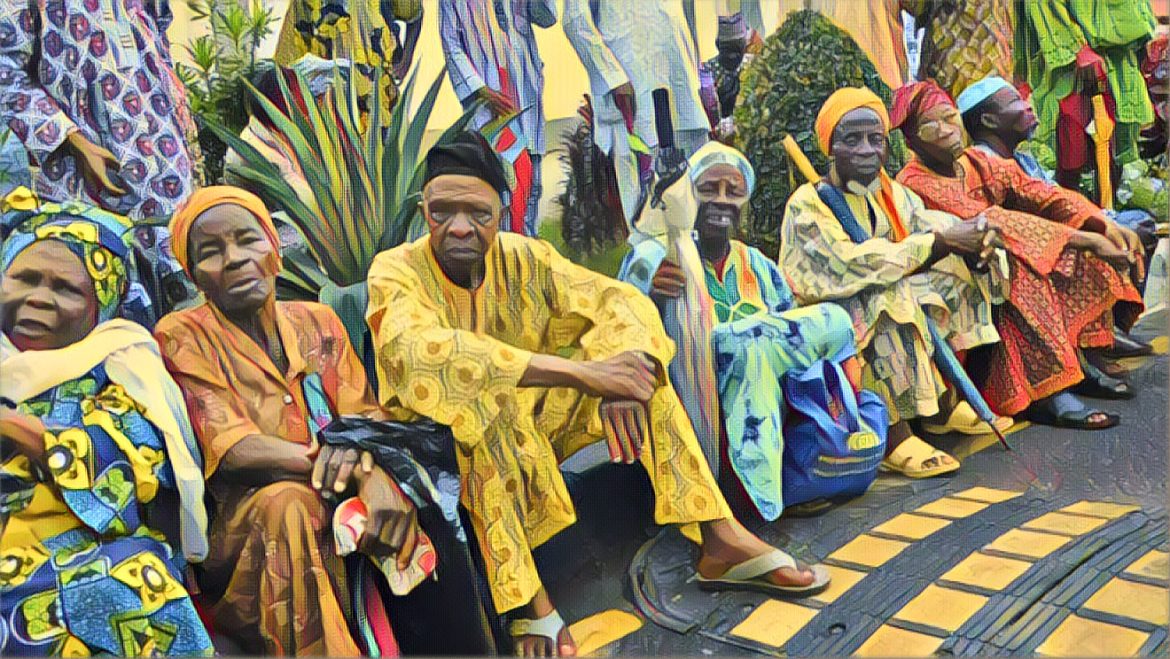In Nigeria, the harsh economic realities have hit elderly citizens particularly hard. Many, lacking pensions or adequate fallbacks, struggle to meet basic needs. The Guardian reports on their plights and the impact on younger generations, highlighting pragmatic solutions from the government and stakeholders.
Retired public school headmaster, Pa Chika Chijiuba embodies the struggles many senior citizens face in Nigeria. After years of serving his country, he now relies on charity for medical and daily needs. His story is not unique; millions of retired Nigerians, both from private and public sectors, depend on often delayed pensions.
In some states, the situation is so dire that elderly citizens resort to menial jobs for survival. The government introduced pension and gratuity deductions from employees’ salaries to alleviate retirees’ hardships. Despite this policy, many senior citizens wait months or years to receive their dues.
According to a report by The Guardian, Economist Dr. Fatai Oriyomi believes this neglect arises from a misunderstanding of senior citizens’ roles in nation-building and poor resource management. He emphasizes that seniors are not only valuable for their resources and values but also for their experiential knowledge, which young people need years to acquire.
Oriyomi argues that failing to pay these elderly citizens their dues reflects poorly on how the nation treats its heroes. He criticizes the inhumane treatment often meted out to seniors, such as long hours in the sun or tedious travels for pension documentation.
Improving senior citizens’ lives could positively impact the younger generation, preventing them from resorting to dubious means for financial security. Oriyomi suggests a retirement scheme that includes training in business management, not limited to farming. He highlights cases where retirees became millionaires through small businesses post-retirement.
Opeyemi Olawale Owosibo, a sociologist and business development consultant, recommends social support services for senior citizens. This could include counselling, mentoring programs, and networking platforms. Such support would help retired civil servants adjust to post-work life and continue contributing to society.
Non-payment or delayed payment of pensions has severe implications, according to Owosibo. It leads to financial hardship, stress, poverty, and eroded trust between the government and civil servants. The sociologist warns that neglecting elderly citizens can erode morale among active civil servants and drive corruption among the youth.
Gabriel Ajose Fadeyi, Vice Chairman of the Senior Citizens’ Association of Nigeria (SCAN), points out that state governments are the worst offenders in pension payments. He advocates for regular pension reviews and raises, stating that some retirees earn as low as N2,000 to N5,000 monthly.
Ajose Fadeyi calls for better health care and support for the elderly. He suggests recreational centers where seniors can socialize and stay mentally active. He also urges the National Assembly to pass the Elders Rights Bill, providing stipends and tax exemptions to senior citizens, as seen in Europe and the USA.
University of Ibadan’s Prof. Ifeanyi Onyeonoru notes that the new pension system still fails to relieve retirees. He stresses that the current situation creates anxiety among those nearing retirement, affecting their mental and physical well-being.
This comprehensive report sheds light on the struggles of Nigeria’s elderly population. It calls for immediate action from the government and society to ensure these senior citizens, who have served the nation, receive the care and respect they deserve.


